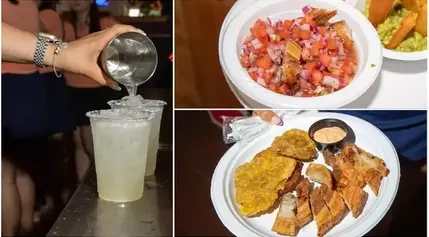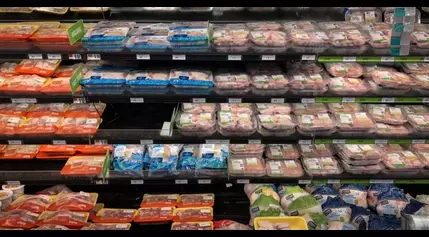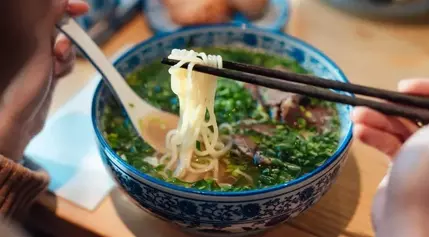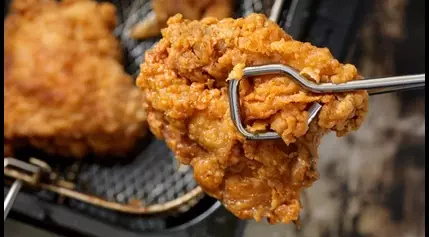News

In a world where the industrial food supply has become a bastion of the luxury economy, the pursuit of idiosyncratic eating habits has taken on a new level of significance. As capitalism continues to inspire unrelenting competition between brands and the branding of items that should be generic, the landscape of food consumption has become increasingly complex, with the promise of "clean eating" and "whole foods" offering a seemingly virtuous alternative to the perils of factory farming and genetic modification. However, this shift has also given rise to a new class of elite, boutique grocery stores that have transformed wellness into a luxury for the few, blurring the lines between necessity and indulgence.
Redefining the Grocery Experience: From Functional to Aspirational
The Evolution of the Supermarket
The supermarket, once a functional space for procuring essential goods, has evolved into a reflection of our societal values and aspirations. The rise of self-service grocery stores in the early 20th century marked a significant shift in the way we interact with our food, as customers were granted the freedom to wander the aisles and curate their own shopping experiences. This newfound autonomy paved the way for the emergence of branding, as companies sought to differentiate their products and earn the loyalty of consumers.The Emergence of "Big Food"
The birth of "Big Food" in the same region that gave us the cultural icon Elvis Presley further cemented the supermarket's role as a hub of convenience and excess. As middle-class and bourgeois America embraced the ready-made meals and snacks that filled the shelves, the supermarket became a symbol of the casual access to sustenance that had become a hallmark of modern life. The rise of the American teenager and their disposable income only amplified this trend, as the supermarket became a stage for the indulgence of youthful appetites.The Shift Towards Conscious Consumption
The self-service grocery model, while efficient, has also been criticized for its lack of transparency and the disconnect it creates between consumers and the origins of their food. This has given rise to a new niche market for "zero-waste" and "containerless" grocery stores, catering to a growing demand for a more conscious and transparent food system. However, these elite, boutique shops have also been accused of turning wellness into a luxury, with their sepia-toned aisles and obscure superfoods catering to a specific demographic.The Erewhon Phenomenon
The prominence of Erewhon, an upscale health food market, is a testament to the evolving priorities of the modern consumer. Derived from the anagramic spelling of the word "nowhere," Erewhon has become a symbol of luxury eating, with its organic, locally sourced produce and high-end prepared foods attracting a celebrity-studded clientele. The market's expansion to multiple locations across Los Angeles has only solidified its status as a destination for those seeking a more elevated, conscientious approach to food consumption.The Allure of the Luxury Food Oasis
The rise of Erewhon and similar high-end grocery stores is not merely a response to the deterioration of Whole Foods or the food scarcity trauma of 2020. It is a reflection of a deeper societal shift, where the pursuit of "clean eating" and "wellness" has become a marker of status and privilege. Celebrities, influencers, and the aspirational middle class flock to these luxury food oases, seeking not just sustenance but a sense of belonging and a connection to a lifestyle that feels both attainable and exclusive.The Paradox of Conscious Consumption
The growth of these upscale grocery stores has also highlighted the paradox of conscious consumption. While they offer a seemingly virtuous alternative to the industrial food system, they have also become sites of repentance for past consumption, where the elite and the aspiring elite can indulge in a fetishized version of sustainability and purity. The disconnect between the reality of food production and the carefully curated experience of these luxury food oases is a testament to the power of branding and the allure of the "clean living" lifestyle.The Rise of the Lifestyle Influencer
The emergence of lifestyle influencers, such as Nara Smith, a model and mother who has become known for her homemade, "clean" recipes, further exemplifies the intersection of luxury, wellness, and food. These influencers have become the embodiment of the "new American" mode, blending beauty, health, and a seemingly effortless approach to living. Their ability to channel a sense of vulnerability, veneration, and opacity has made them both idolized and ridiculed, as they offer a glimpse into a lifestyle that feels both attainable and entirely out of reach.The Spiritual Sickness and the Allure of Luxury
Underlying the rise of the luxury food oasis is a deeper spiritual sickness that pervades the West. The thrill of paying more for the false security of organic, non-GMO, and "Nara Smith-approved" groceries speaks to a yearning for a sense of control and belonging in a world that often feels chaotic and disconnected. For some, like the author's widowed mother, these luxury grocery stores have become a refuge, a place to find solace and a sense of purpose in the face of the alienation of modern life.In the end, the luxury food oasis is a complex and multifaceted phenomenon, reflecting the evolving priorities and aspirations of the modern consumer. As the industrial food supply continues to be the last bastion of the luxury economy, the pursuit of idiosyncratic eating habits has become a symbol of status, a means of self-expression, and a quest for a sense of control in a world that often feels beyond our grasp.




















